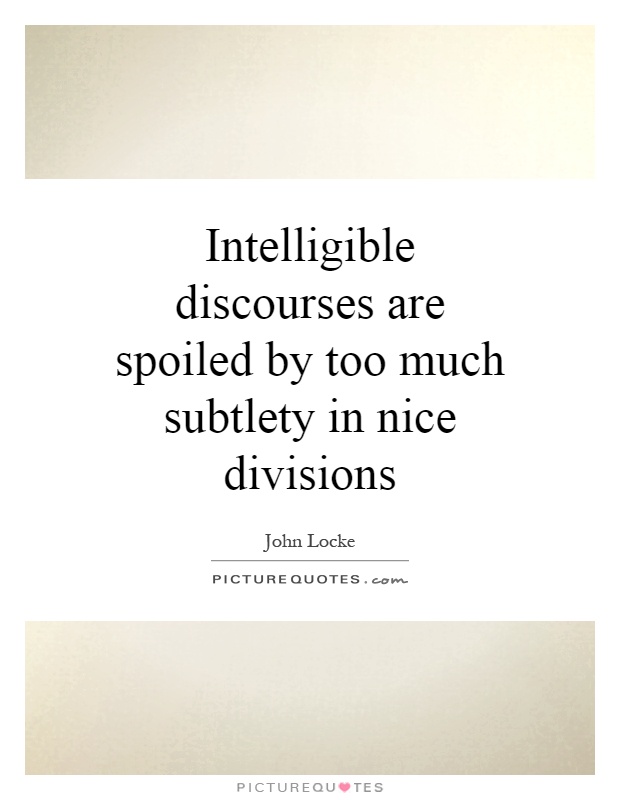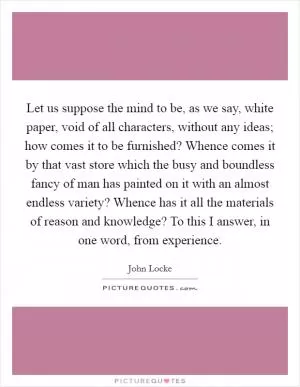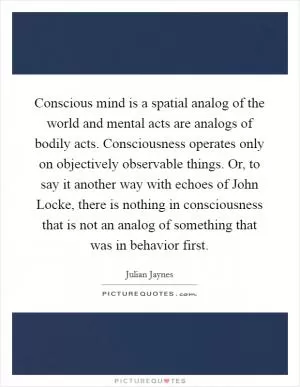Intelligible discourses are spoiled by too much subtlety in nice divisions

Intelligible discourses are spoiled by too much subtlety in nice divisions
John Locke, a prominent figure in the Enlightenment era, was a firm believer in the power of intelligible discourse. He believed that clear and concise communication was essential for the advancement of knowledge and understanding. In his work, Locke often emphasized the importance of simplicity and clarity in language, arguing that overly complex and subtle arguments could hinder rather than enhance understanding.Locke's famous quote, "Intelligible discourses are spoiled by too much subtlety in nice divisions," speaks to his belief that excessive intricacy and complexity can obscure the true meaning of a discourse. Locke believed that language should be used as a tool for conveying ideas and concepts in a straightforward and accessible manner. He argued that overly intricate and convoluted arguments could lead to confusion and misinterpretation, ultimately hindering the progress of knowledge.
Locke's emphasis on intelligible discourse can be seen throughout his works, particularly in his Essay Concerning Human Understanding. In this seminal work, Locke explores the nature of human knowledge and understanding, arguing that clear and precise language is essential for the development of sound reasoning and critical thinking. Locke believed that language should be used as a means of conveying ideas and concepts in a way that is easily understood by others.
Locke's critique of excessive subtlety in nice divisions can be seen as a rejection of the overly complex and abstract philosophical arguments that were prevalent in his time. Locke believed that philosophy should be grounded in empirical observation and practical experience, rather than abstract speculation and intricate reasoning. He argued that clear and intelligible discourse was essential for the advancement of knowledge and understanding, and that excessive subtlety could hinder rather than enhance the pursuit of truth.












 Friendship Quotes
Friendship Quotes Love Quotes
Love Quotes Life Quotes
Life Quotes Funny Quotes
Funny Quotes Motivational Quotes
Motivational Quotes Inspirational Quotes
Inspirational Quotes